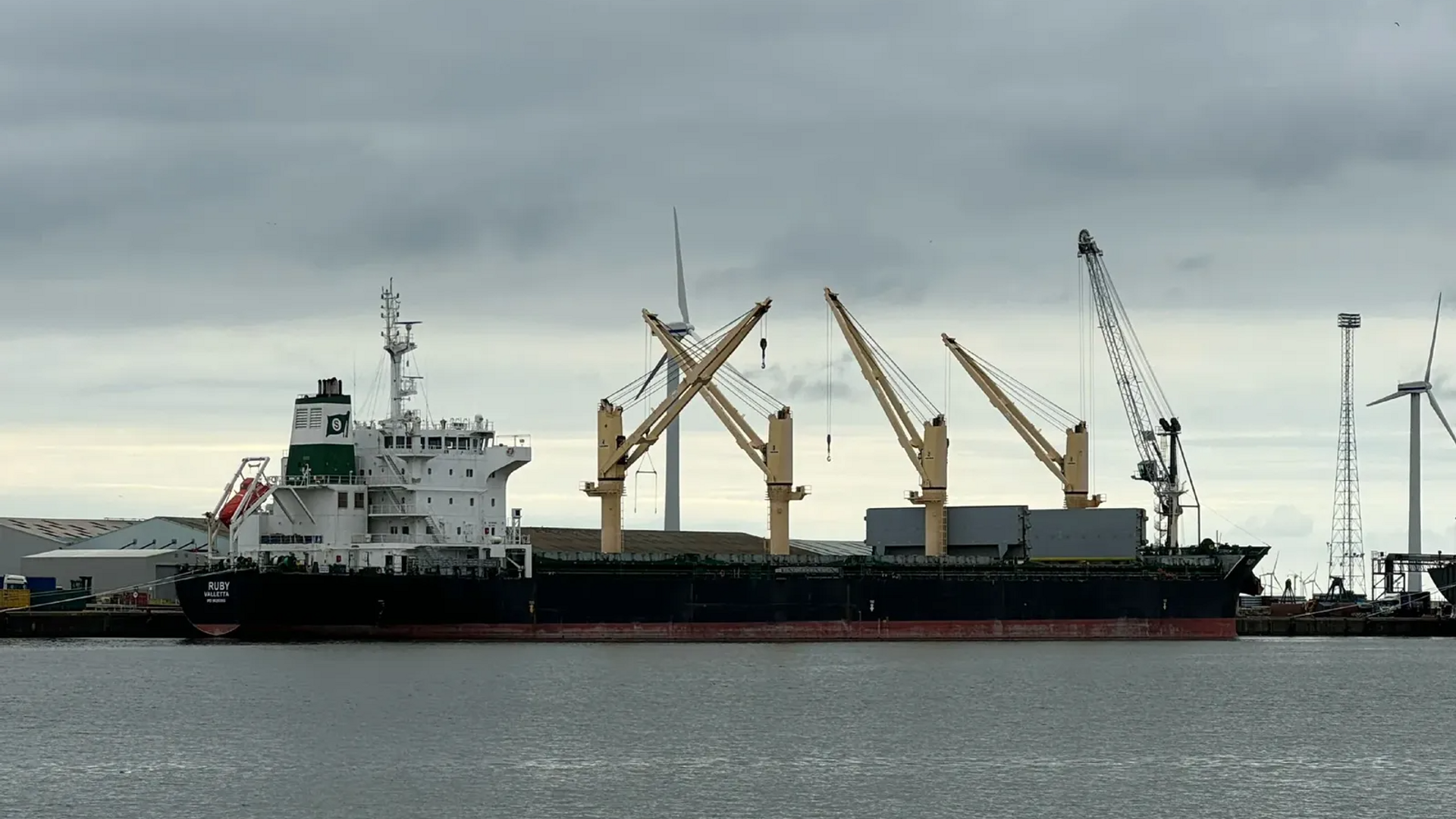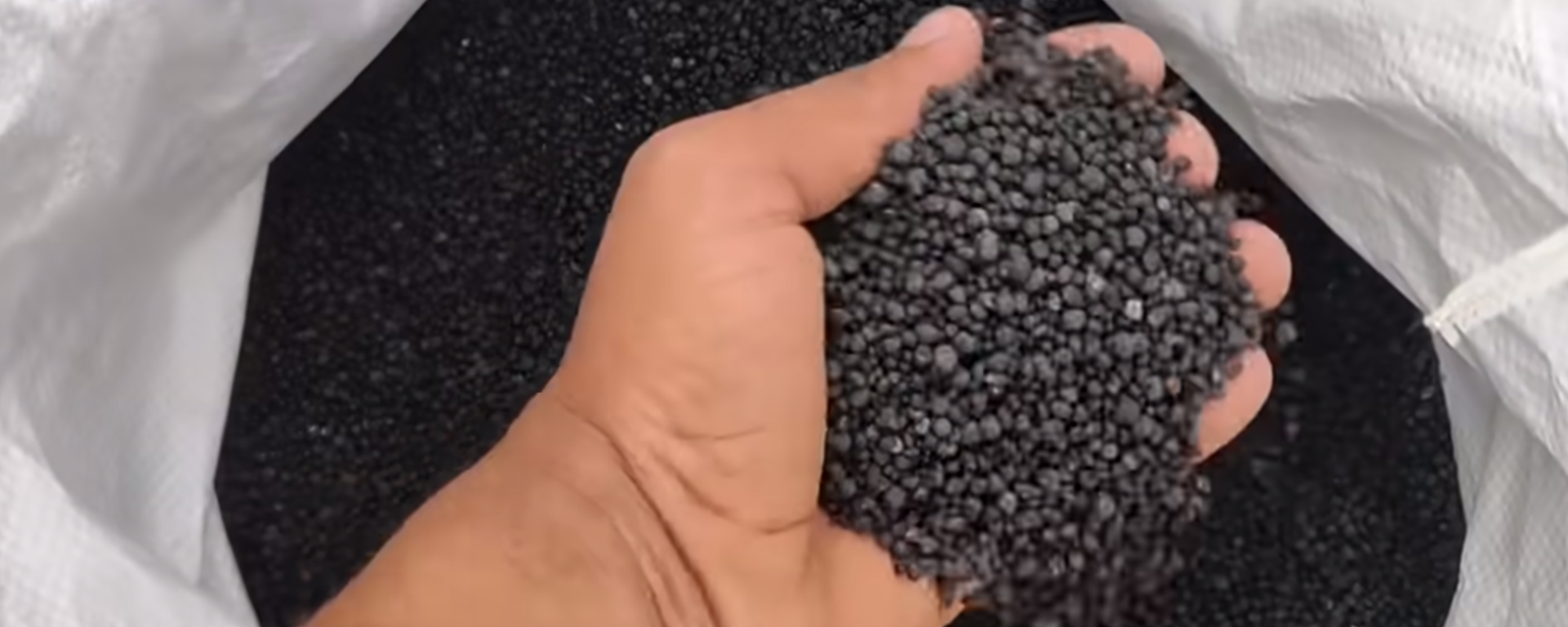https://en.sputniknews.africa/20241010/african-agriculture-food-security-in-trouble-unless-russian-fertilizer-arrives-expert-says-1068630609.html
African Agriculture, Food Security 'in Trouble' Unless Russian Fertilizer Arrives, Expert Says
African Agriculture, Food Security 'in Trouble' Unless Russian Fertilizer Arrives, Expert Says
Sputnik Africa
The MV Ruby cargo vessel carrying fertilizer was damaged en route from Russia to Africa and is currently not being allowed into EU and UK ports for repairs due... 10.10.2024, Sputnik Africa
2024-10-10T18:33+0200
2024-10-10T18:33+0200
2024-10-10T19:05+0200
opinion
russia-africa cooperation
russia
africa insight
africa
brics
european union (eu)
sanctions
anti-russian sanctions
fertilizers
https://cdn1.img.sputniknews.africa/img/07e8/0a/07/1068585627_0:111:1600:1011_1920x0_80_0_0_66151578588204f2fa406565b548a85b.png
African agricultural sector, and therefore food security, is "in trouble" if the cargo ship carrying 20,000 tonnes of Russian fertilizer cannot reach the continent any time soon, Dr. Tafadzwa Ruzive, an expert in BRICS financial development and economics, told Sputnik Africa.According to the scholar, such disruptions pause or make agricultural operations in Africa completely impossible, which means that the EU sanctions negatively affect trade flows between Russia and Africa.Russia's fertilizer supply to Africa is critical, as it helps to develop the agricultural sector and ensure food security on the continent. Furthermore, the issue is deeper than just "food and agricultural systems," he stressed.Ruzive pointed out that by preventing Russian ships from docking and being repaired, the West is causing a serious destabilization not only to the African food systems, as food insecurity provokes military or political problems that spill over into immigration, problems that end up back in Europe.The MV Ruby was received in a Norwegian port on September 1, and the country's Maritime Authority said that inspectors examined the vessel and found damage to the rudder, hull, and propeller. A government spokesman said the cargo posed no threat, but the authority sent the vessel elsewhere for repairs on condition that it be accompanied by a tugboat. However, according to the US media report, no port has since accepted the ship, allegedly due to fears that the ammonium nitrate being transported could lead to a "catastrophic explosion," citing a 2020 incident when 2,750 tonnes of ammonium nitrate exploded in the port of Beirut, Lebanon.
https://en.sputniknews.africa/20240709/russia-ready-to-boost-fertilizer-exports-to-africa-asia-prime-minister-1067431636.html
russia
africa
united kingdom (uk)
Sputnik Africa
feedback@sputniknews.com
+74956456601
MIA „Rossiya Segodnya“
2024
News
en_EN
Sputnik Africa
feedback@sputniknews.com
+74956456601
MIA „Rossiya Segodnya“
Sputnik Africa
feedback@sputniknews.com
+74956456601
MIA „Rossiya Segodnya“
russia-africa cooperation, russia, africa insight, africa, brics, european union (eu), sanctions, anti-russian sanctions, fertilizers, agriculture, cooperation, trade, united kingdom (uk), crisis, migrant crisis
russia-africa cooperation, russia, africa insight, africa, brics, european union (eu), sanctions, anti-russian sanctions, fertilizers, agriculture, cooperation, trade, united kingdom (uk), crisis, migrant crisis
African Agriculture, Food Security 'in Trouble' Unless Russian Fertilizer Arrives, Expert Says
18:33 10.10.2024 (Updated: 19:05 10.10.2024) Alla Shukanova
Writer / Editor
The MV Ruby cargo vessel carrying fertilizer was damaged en route from Russia to Africa and is currently not being allowed into EU and UK ports for repairs due to fears of a possible detonation of ammonium nitrate carried on board, reports said on Monday.
African agricultural sector, and therefore food security, is "in trouble" if the cargo ship carrying 20,000 tonnes of Russian fertilizer cannot reach the continent any time soon, Dr. Tafadzwa Ruzive, an expert in BRICS financial development and economics, told Sputnik Africa.
"Since fertilizer is a time-sensitive input into crops, delays and complete cancellations of shipments severely affect yields, leading to increased vulnerability in the food security situation in Africa. This makes it difficult to reach African states that need fertilizer and leads directly to instability in the collective African food system and negative shocks to African economies, which are commodity dependent," Ruzive said in an interview.
According to the scholar, such disruptions pause or make agricultural operations in Africa completely impossible, which means that the EU sanctions negatively affect trade flows between Russia and Africa.
"I do not think the risk of that ship [detonating] is any bigger than the ships that are docking everywhere in the EU and in allied nations, so [this] might be just a political hint of sanctions there, framing the boat as a detonation risk, whereas it isn't," the expert noted.
Russia's fertilizer supply to
Africa is critical, as it helps to develop the agricultural sector and ensure food security on the continent. Furthermore, the issue is deeper than just "food and agricultural systems," he stressed.
"But when you dig into specificities, it affects issues such as peace and security of the continent, making this a massive geopolitical axis with two actors that would want to exert leverage to achieve their aims. So the flows between Russia and Africa enable Africa to develop its agricultural sector, enhancing food security while simultaneously strengthening the manufacturing might of the Russian Federation," the speaker said.
Ruzive pointed out that by preventing Russian ships from docking and being repaired, the West is causing a serious destabilization not only to the African food systems, as
food insecurity provokes military or political problems that spill over into immigration, problems that end up back in Europe.
"Eventually that thing, the domino effect, is going to come back to the European Union," he concluded.
The MV Ruby was received in a Norwegian port on September 1, and the country's Maritime Authority said that inspectors examined the vessel and found damage to the rudder, hull, and propeller.
A government spokesman said the cargo posed no threat, but the authority sent the vessel elsewhere for repairs on condition that it be accompanied by a tugboat. However, according to the US media report, no port has since accepted the ship, allegedly due to fears that the ammonium nitrate being transported could lead to a "catastrophic explosion," citing a 2020 incident when 2,750 tonnes of ammonium nitrate exploded in the port of Beirut, Lebanon.


